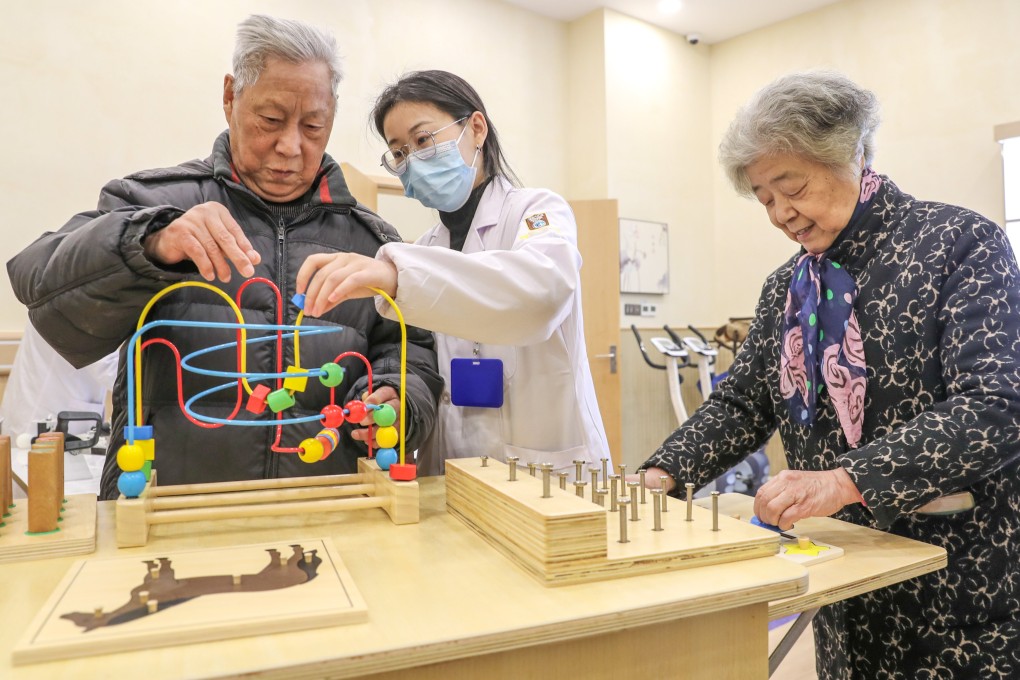What’s next for China’s first eldercare graduates? For some, not eldercare
- Whether young people stay in the sector will be closely watched as Beijing tries to lower the youth-unemployment rate while providing care for a rapidly ageing population
- Some eldercare-programme graduates can expect to make US$8,280 a year after taxes, well under the average salary expectation among college graduates

Four years after a pair of Chinese universities began offering the nation’s first undergraduate programmes in eldercare, members of those pilot classes nearly have their degrees in hand – putting the trailblazing students in position to support an industry that desperately needs them, but which many young people would rather avoid, even in an increasingly tight job market.
A total of 96 undergraduates from Shandong Women’s University and the Shanghai University of Engineering Science will graduate this summer, state broadcaster CCTV reported last month.
Among the 64 students from Shandong Women’s University, the bulk are in the midst of job interviews, 12 intend to take entrance exams for the civil and public service, and 10 have said they plan to keep looking for opportunities, Yan Xiaohong, dean of its social sciences and law school, said in the CCTV programme.
“As far as we know, about 70 per cent of students have a strong desire to stay and work in elderly care companies, which we are very pleased about,” Yan said.
Shanghai University of Engineering Science did not respond to a Post request for similar data about their graduates.
